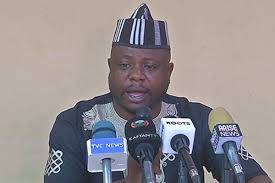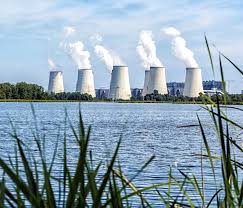***Proffers stringent measures to save the sector
The former Governor of Kaduna State Nasiru El-Rufai on Tuesday dazzled the senate with depth of his knowledge of the power sector as he spoke with precision on the portfolio as if he had been confirmed as power minister.
Former Governor of Zamfara State, Senator Abubakar Yari who started with three questions that were centered on power, asked him if confirmed and the President assigned him with power sector portfolio how he would handle the myriads of problems bedevilling the sector?
While responding, El-rufai indicated that the electricity supply situation in Nigeria had defied every government for 60 years.
“President Asiwaju Ahmad Tinubu is committed to ensure Nigeria has stable and reliable electricity supply, vecause without electricity, industrialisation is a pipe dream.
“Without electricity, even Agriculture today is not a viable proposition. So he is committed to that and he has asked me to work with him to address these problems so I will do my best to address them.
“Right now Nigeria has about 13000mw of installed generation capacity but we hardly utilize more than 4000mw or 5000mws. So to improve generation, our business is to look at what is constraining the full production of electricity from this 13000mw.
“We have 13000mw installed and only 4000mw/5000mw being produced. Many of the generation stations cannot produce because of poor supply of gas.
“80% of our generation is from gas and the balave is hydro. The gas fired stations often don’t have supply of gas. Power stations that have been completed two or three years ago and have produced nothing because there is no gas supply
“So that is another issue that we need to look into, we must ensure that gas and power are together under one roof for this issue of gas supply which has persisted for over 20years to be resolved.
“Even if we are able to generate 13mw as at today, our transmission infrastructure can only do 5000mw maybe 6000mw at best. The second major constraint to electricity supply in Nigeria is Transmission infrastructure. “We need to close the loop in our transmission system so that the 13 system collapses we had in 2022 are not repeated again in our history and this can be done. There is money to expand the transmission infrastructure, we just need to organize ourselves, remove politics from transmission Procurement and focus on improving our transmission infrastructure
“The third problem is distribution. In 2013 we privatized our distribution companies, 11 of them, 60% to the private sector, 40% to be owned by government, the idea is that the 40% is supposed to be listed on the foreign exchange so that every Nigerian will be a sharehkolder in it.
“But that has not happened, 10 years after privatization the government is still subsidizing electricity in one way or the other. As I said the last time we checked it was about N1.6tr in the privatized environment. “This is unsustainable and unacceptable. But what do we do with the distribution companies, they are being privatized about 5 to 6 of them are under receivership, those that bought the companies borrowed from banks and have not been paying the banks. “They have taken over 5 or 6 of them. The last time we did a stress test for the distribution companies only 3 of them out of 11 are doing well.
“So there is a lot of work to be done regarding distribution, because distribution to the last end of electricity does not work, if they don’t collect money, then they will not be able to pay for the power supplied by the generation companies and when they are unable to pay for the gas, it is what the government pays the risk guarantee entered by the federal government of Nigeria.
It has to be addressed but in a short term the liquidity in the electricity supply company have to be looked at.
“Tariffs must be cost effective and even the ownership of these distribution companies will have to change because right now the banks own about 6 of them, they control 60% of the shares.
“Banks are not good as business owners but they are good at taking whatever they need to recover their loans. So we intend if given the opportunity to work out a system in which perhaps we are able attract fresh capital, new investors with technical and financial capacity into the Distribution chains.
According to him, The opportunity to do so exist as 6 out of the 11 are in receivership and 3 are doing well, the others are 50/50 but a holistic approach is needed.
“This is a problem that requires the support of everyone it is not the President who will lead from the front alone but also the National Assembly. Certain amendments in the electricity act 2023 may be needed. “Certain amendment to the PIB 2021 may be needed to bring this sector to align so that we provide Nigeria stable and reliable Electricity.
He said the President’s vision is that within the next 7 years, “we will not have the problem of power failure in this country.” “The President is saddened by the fact that countries like Benin Republic, Niger and Cameroun our neighbors have reliable Electricity, you don’t see power failing in the less countries, yet with all our resources and the quality of people we have in this nation we are unable to provide Electricity for household and our businesses
“I urge the National Assembly to be a partner to make this happen. There are many parts of Nigeria that are not covered by the grid, the new Electricity act provides the states with greater involvement now in the Electricity supply industry and what is happening in the world provides opportunity for Nigeria to attract a lot of resources into the renewable energy sector utilizing solar, wind and even nuclear and we are not ruling out using our own reserves to establish power station that will form the base for stability of the power sector. So all options would be look into.
“Metering is a big issue, a lot of progress has been made by some of the Distribution Companies in the last 3 or 4 years with the support of the CBN and the world Bank, every household should be metered, every business should be metered, estimated billings is not acceptable, but in addition, Nigeria must take a hard stance against those that steal Electricity.
“Those that get Electricity by diverting cables not paying, we must take a hardline stance against it if this sector is to work. A lot of Advocacy is necessary.
“People believe that water and electricity should be free, they social services but they are not. They cost money to produce. The least you can do is pay back for the cost of production and handing it to the private sector, they need some return in its investment over and above the cost of production.
“This was the intervention of the Electric power sector reform act of 2005 which this National Assembly enacted.
Error Icon
Address not found
Your message wasn’t delivered to oluseye_daniel@yahoo.co.uk because the address couldn’t be found, or is unable to receive mail.
The response from the remote server was:
552 1 Requested mail action aborted, mailbox not found

———- Forwarded message ———-
From: John Akubo johnakubo@gmail.com
To: newsalert@guardian.ng, “Newsroom@guardian Ng” newsroom@guardian.ng, theguardian1983 theguardian1983@gmail.com, Thee Ofoelue Ofoelue@gmail.com, Tope Templer temitope.olaiya@guardian.ng, TemplerOlaiya templer2k2@yahoo.com, muyiwa.adeyemi@guardian.ng, Guardian politics 2 oluseye_daniel@yahoo.co.uk
Cc:
Bcc:
Date: Tue, 1 Aug 2023 18:39:34 +0100
Subject: El-Rufai speaks as power minister designate at screening ***says Tinubu invited him to fix sector ***Proffers stringent measures to save the sector ***Says Nigeria still subsidizes electricity by N1.6tr
—– Message truncated —–



